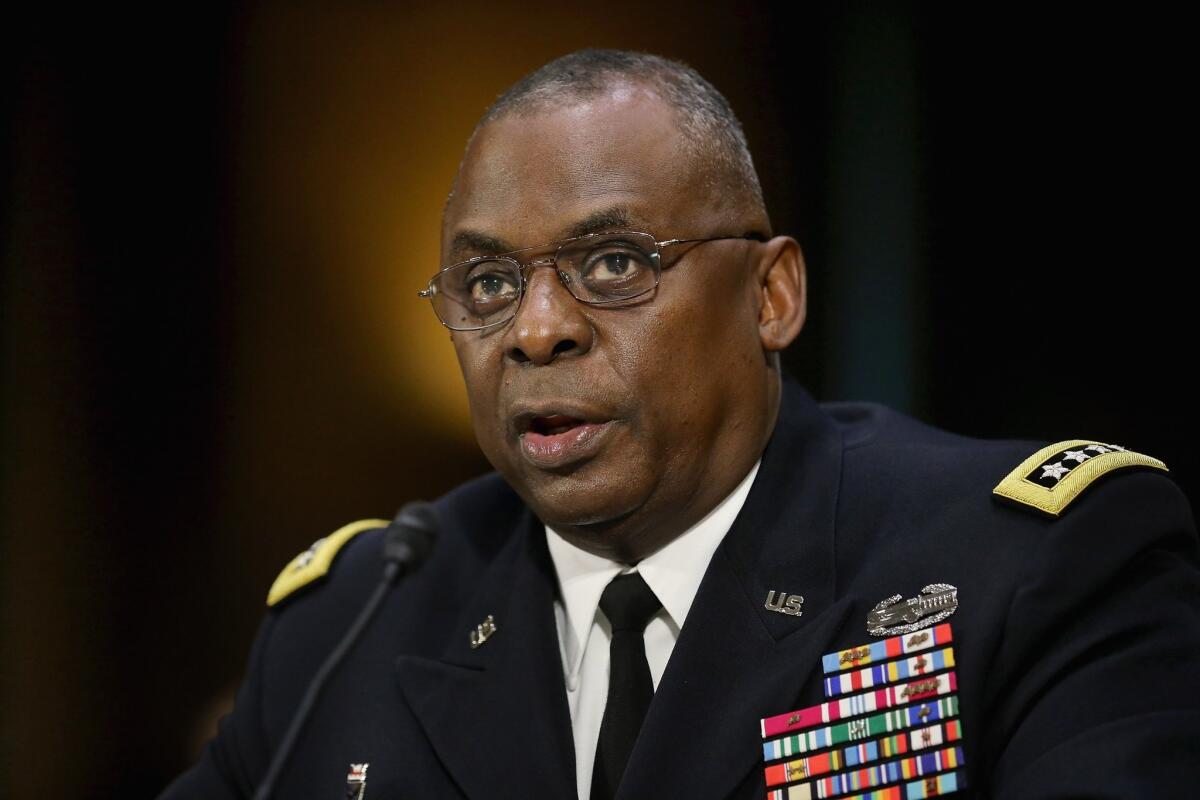U.S. commander says only 4 or 5 Pentagon-trained fighters in Syria

- Share via
Reporting from Washington — The top U.S. commander in the Middle East said Wednesday that a Pentagon program that sought to train and arm 5,400 opposition fighters to confront Islamic State militants in Syria this year has only “four or five” in the field.
Gen. Lloyd Austin III, commander of U.S. Central Command, made the disclosure Wednesday during a heated hearing in the Senate Armed Services Committee, where he was grilled about the $500-million program’s effectiveness.
Under U.S. law, the Pentagon must vet the fighters to ensure they are not extremists. That, combined with logistical and political challenges in the fierce multi-sided war, has led to long delays in the year-old program.
Austin said the first group of 54 fighters were sent into northern Syria in July after a six-week training course. But they were attacked by Al Nusra Front, an Al Qaeda affiliate, and most of the fighters were killed, captured or scattered.
Asked how many remain, he responded, “It’s a small number. ... We’re talking four or five.”
“As I see it right now this four or five U.S. trained fighters -- let’s not kid ourselves, that’s a joke,” said Sen. Kelly Ayotte (R-N.H.).
Sen. John McCain (R-Ariz.), chairman of the committee, repeatedly accused Austin of projecting a rosier view of the U.S. effort to defeat Islamic State than the facts suggest.
A separate CIA-run program is believed to have armed and fielded a larger force, but little is known about it.
Austin conceded the Pentagon has struggled to train and equip a proxy force, and that the military will fall far short of its goal of training 5,400 rebel fighters a year for the next three years.
“At the pace we’re going, we won’t reach the goal that we had initially established for ourselves,” Austin said.
Four countries -- Turkey, Jordan, Saudi Arabia and Qatar -- agreed to host the Pentagon training program.
But they sharply disagree with Washington on what the proposed proxy force should do. They want the rebel force to focus first on ousting Syrian President Bashar Assad, while the White House wants the fighters to target Islamic State.
Austin said he could not comment on reports of an internal Pentagon investigation into whether officers under his command had altered military intelligence assessments to make the U.S. campaign against the Islamic State seem more successful.
“Once the investigation is completed, based on the findings, you can be assured that I will take appropriate actions,” he said.
Follow @wjhenn for military and defense info.
ALSO
Sixth body found after Zion canyon hikers are trapped in flash flood
No end in sight for Seattle school strike; officials warn of later graduation
Suspect in Mississippi killings dies from self-inflicted gunshot wound, police say
More to Read
Sign up for Essential California
The most important California stories and recommendations in your inbox every morning.
You may occasionally receive promotional content from the Los Angeles Times.











